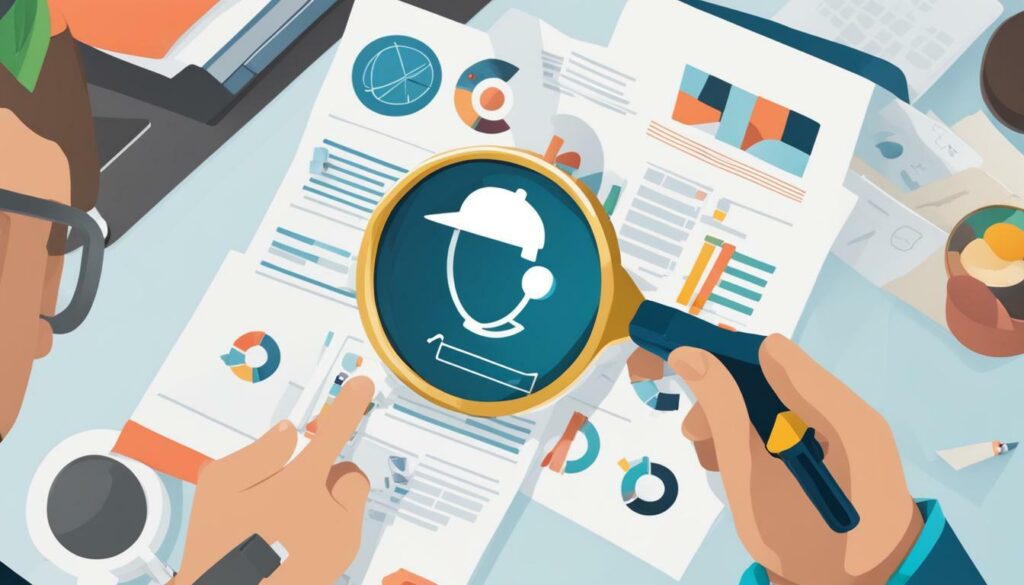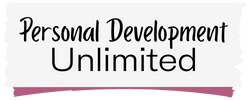Welcome to the “Unlocking Your Potential: Pathways to Success Guide,” where you will discover the keys to unlocking your true potential and achieving the success you’ve always dreamed of. This comprehensive guide is designed to help you break free from mediocrity and embark on a journey of personal and professional growth.
Throughout this guide, you will find practical tips, wisdom, and anecdotes that will empower you to develop the mindset and strategies necessary for achieving your goals. Whether you are an entrepreneur, student, or career professional, this guide is for anyone seeking a life change and ready to take their success to the next level.
Table of Contents
Key Takeaways
- Recognize and utilize your prior learning experiences to accelerate your growth.
- Assess your skills and qualifications to identify your strengths and areas for improvement.
- Place importance on personal development and well-being to sustain your success.
- Create a strategic plan and set long-term goals for your future.
- Nurture meaningful connections and seek opportunities to network and collaborate.
Unlocking your potential starts with a mindset shift and a commitment to taking action. The “Unlocking Your Potential: Pathways to Success Guide” is your roadmap to achieving the success you’ve always dreamed of.
Get ready to unlock your true potential and embark on a journey of personal and professional fulfillment. Your success starts here!
Defining Success and Setting Goals
Before embarking on your journey to success, it’s crucial to understand what success means to you and set meaningful goals that align with your vision. Success is a deeply personal and subjective concept. It may mean financial prosperity, making a positive impact in the world, or achieving personal fulfillment. Whatever your definition of success may be, the key lies in identifying your true passions and values.
Take a moment to reflect on what truly matters to you. What are your core beliefs? What brings you joy and a sense of purpose? These introspective questions will help you define your own version of success. Once you have a clear understanding of your aspirations, it’s time to translate them into actionable goals.
Setting goals provides you with a roadmap to navigate through life. It gives you direction, focus, and a sense of accomplishment as you tick off milestones along the way. Start by setting long-term goals that encompass your overarching vision of success. Break them down into smaller, achievable steps or short-term goals that will propel you forward. Create a timeline and track your progress to ensure you stay on course. Remember, goals should be specific, measurable, attainable, relevant, and time-bound.

| Quote | Author |
|---|---|
| “Success is not final, failure is not fatal: It is the courage to continue that counts.” | Winston Churchill |
| “Success is not the key to happiness. Happiness is the key to success. If you love what you are doing, you will be successful.” | Albert Schweitzer |
| “Success is not in what you have, but who you are.” | Bo Bennett |
Developing a Growth Mindset
A growth mindset is a fundamental mindset for achieving success. It is the belief that your abilities and intelligence can be developed through dedication, effort, and continuous learning. With a growth mindset, you embrace challenges, persist in the face of setbacks, and view failures as opportunities for growth.
Cultivating a growth mindset begins with self-awareness. Challenge your fixed beliefs and self-limiting thoughts. Replace them with positive affirmations and a can-do attitude. Embrace learning opportunities, seek feedback, and surround yourself with supportive individuals who inspire and uplift you.
- Challenge your limitations and embrace growth opportunities.
- View setbacks as learning experiences and opportunities for growth.
- Develop resilience and a positive attitude towards failure.
- Seek feedback and continuously strive for improvement.
By cultivating a growth mindset, you’ll unlock your potential and pave the way for continuous personal and professional growth.
Developing a Growth Mindset
Cultivating a growth mindset is the key to unlocking your full potential and embracing the mindset required for success in all areas of life. With a growth mindset, you believe that your abilities and intelligence can be developed through dedication, hard work, and a willingness to learn. This mindset empowers you to view failures and setbacks as opportunities for growth and to approach challenges with resilience and determination. It is a mindset that allows you to continuously improve, adapt, and achieve new levels of success.
One of the fundamental aspects of developing a growth mindset is understanding that your abilities are not fixed, but rather can be developed over time. This belief fuels a desire to constantly seek new challenges and push yourself beyond your comfort zone. By embracing the idea that your skills and talents are not predetermined, you open yourself up to a world of possibilities and set the stage for incredible personal and professional growth.
To cultivate a growth mindset, it’s important to foster a love for learning and embrace the process of acquiring new knowledge and skills. Actively seek out opportunities to expand your horizons, whether it’s through reading books, attending workshops, or pursuing further education. Surround yourself with like-minded individuals who inspire and challenge you, and don’t be afraid to seek guidance and constructive feedback that will help you improve.

| Key Traits of a Growth Mindset | Key Traits of a Fixed Mindset |
|---|---|
| Embracing challenges | Avoiding challenges |
| Persisting in the face of setbacks | Giving up easily |
| Believing in effort and hard work | Believing in innate talent |
| Learning from criticism | Taking criticism personally |
| Finding inspiration in the success of others | Feeling threatened by the success of others |
“The only limit to our realization of tomorrow will be our doubts of today.” – Franklin D. Roosevelt
A growth mindset is not only about personal growth but also about contributing to the growth of others. By sharing your knowledge, skills, and experiences, you can inspire and uplift those around you. Collaboration and mentorship become avenues for both personal and collective success. Remember, success is not a destination but a journey, and cultivating a growth mindset ensures that the journey is as fulfilling and transformative as possible.
Building Success Habits
Success is not an overnight achievement; it is the result of consistently practicing success habits that lead to long-term personal and professional growth. Building success habits is like constructing a strong foundation for a thriving future. By incorporating positive habits into your daily routine, you set yourself up for success in every aspect of your life.
One of the most effective ways to cultivate success habits is to start with small, achievable goals. Break down your larger aspirations into manageable tasks and create a daily or weekly action plan. This helps to create a sense of progress and accomplishment, boosting motivation and confidence along the way. As you consistently complete these smaller tasks, they eventually become ingrained in your routine, forming the building blocks of success.

Another crucial aspect of building success habits is maintaining consistency. Consistency is the key to making habits stick. Set specific times each day to dedicate to your chosen habits, and commit to them religiously. Regardless of external circumstances or distractions, stay focused and disciplined. Remember that success is not a destination; it is a continuous journey that requires dedication and perseverance.
Table: Examples of Success Habits
| Habit | Description |
|---|---|
| Positive Affirmations | Start your day by affirming positive beliefs about yourself and your abilities. |
| Daily Planning | Create a roadmap for your day to stay organized and prioritize tasks effectively. |
| Exercise | Maintain a consistent exercise routine to boost energy, productivity, and overall well-being. |
| Lifelong Learning | Commit to continuous growth by reading, attending workshops, and seeking new knowledge. |
| Gratitude Practice | Cultivate a mindset of gratitude by regularly expressing appreciation for the people and things in your life. |
Quote: “Success is a journey, not a destination. The doing is often more important than the outcome.” – Arthur Ashe
It’s important to remember that building success habits is not about perfection. Allow yourself room for flexibility and forgiveness, as setbacks and challenges are inevitable. Embrace the mindset of continuous improvement and adapt your habits as needed. With consistent practice and a positive mindset, you will gradually transform your actions and habits, ultimately leading to lasting success.
Cultivating Resilience and Overcoming Obstacles
Success is not without its obstacles, but developing resilience is what sets successful individuals apart, enabling them to overcome adversity and continue moving forward. In the face of challenges, it is crucial to cultivate a mindset that embraces resilience, enabling you to bounce back stronger and more determined than ever.
Resilience is not a trait that you are born with; it is a skill that can be developed over time. By building resilience, you can navigate the ups and downs of life with greater ease and effectiveness. One way to cultivate resilience is by reframing setbacks as opportunities for growth and learning. Instead of viewing failures as a reflection of your worth or capabilities, see them as stepping stones towards success.
Another key aspect of resilience is maintaining a positive mindset. It is important to remember that setbacks are temporary and that you have the power to overcome them. Surround yourself with positive influences, practice self-care, and focus on your strengths and accomplishments. By nurturing a positive mindset, you can build the resilience needed to face any challenge.
“Resilience is not a trait that you are born with; it is a skill that can be developed over time.”
Additionally, developing a support network can greatly enhance your resilience. Seek out individuals who inspire, motivate, and uplift you. Share your challenges and aspirations with them, and allow their wisdom and encouragement to fuel your determination. Collaborating and learning from others who have overcome similar obstacles can provide valuable insights and strategies for your own journey.
Ultimately, cultivating resilience is about embracing the belief that you have the power to overcome any obstacle on your path to success. By developing resilience, maintaining a positive mindset, and surrounding yourself with empowering influences, you can conquer adversity and achieve your goals.

| Key Strategies for Cultivating Resilience |
|---|
| 1. Reframe setbacks as opportunities for growth and learning. |
| 2. Maintain a positive mindset and focus on your strengths. |
| 3. Surround yourself with positive influences and a supportive network. |
| 4. Seek inspiration and wisdom from those who have overcome similar challenges. |
Leveraging Prior Learning Experiences
Your past experiences hold valuable lessons that can be leveraged to propel you closer to success; learn how to tap into your prior learning to gain an advantage on your journey. Whether it’s a successful project you completed, a challenging situation you overcame, or even a failure that taught you important lessons, your past experiences have shaped you into the person you are today. By reflecting on these experiences and identifying the key takeaways, you can unlock a wealth of knowledge and wisdom that will support your path to success.
One effective way to leverage your prior learning experiences is through self-reflection. Take the time to think about the projects, tasks, or challenges you have faced in the past. Consider what worked well, what mistakes were made, and what lessons you learned. By examining these experiences, you can identify patterns and strategies that can be applied to future endeavors. This self-reflection also helps you understand your strengths and areas for improvement, enabling you to focus on honing your skills and developing new ones.

Another valuable method for leveraging prior learning experiences is through effective knowledge sharing and collaboration. Engage with mentors, colleagues, or industry experts who can provide valuable insights and perspectives. By sharing your experiences and learning from others, you can gain new ideas, innovative approaches, and alternative viewpoints that can enhance your success strategies. Collaborating with like-minded individuals also provides opportunities for networking and creating meaningful connections that can open doors to new opportunities and collaborations.
Remember, success is not solely about achieving specific goals; it is a continuous journey of growth and improvement. By tapping into your past experiences, you can equip yourself with the wisdom and knowledge needed to navigate the challenges and opportunities that lie ahead. So, take the time to reflect, learn from others, and embrace the power of leveraging your prior learning experiences on your path to success.
Assessing Skills and Qualifications
Conducting a thorough assessment of your skills and qualifications is essential for aligning your goals with your current capabilities and identifying areas of growth. Evaluating your strengths and weaknesses allows you to make informed decisions and tailor your approach to achieving success. Here are some effective methods to assess your skills and qualifications:
Self-Reflection
Start by reflecting on your past experiences, both personal and professional. Identify the tasks and activities that you excel in and enjoy, as well as those that you find challenging. Take note of the specific skills and qualifications required to excel in these areas. Self-reflection provides valuable insights into your natural talents and areas where you can further develop.
Skills Inventory
Creating a skills inventory is a practical way to assess your capabilities. Make a list of the technical and transferable skills you possess, such as communication, leadership, problem-solving, and proficiency in specific software or tools. Rate your proficiency level for each skill, and identify any gaps that need to be filled. This inventory serves as a reference point for setting goals and targeting areas for improvement.
Objective Assessments
Objective assessments, such as quizzes, tests, and performance evaluations, provide an unbiased measure of your skills and qualifications. Seek out assessments specific to your field or industry that can validate your knowledge and expertise. These assessments provide a benchmark for comparison and help identify areas where further development is needed.
Remember, assessing your skills and qualifications is an ongoing process. As you progress in your personal and professional journey, continuously evaluate and update your assessment to stay aligned with your goals. By understanding your strengths and areas for improvement, you can develop a targeted plan of action and increase your chances of achieving success.
| Methods of Assessing Skills and Qualifications | Benefits |
|---|---|
| Self-Reflection |
|
| Skills Inventory |
|
| Objective Assessments |
|
Assessing your skills and qualifications is a crucial step in your journey to success. Remember to embrace the process and view it as an opportunity for growth. By understanding where you stand and where you want to go, you can pave the way for a future filled with personal and professional accomplishments.

Personal development and prioritizing your well-being are crucial aspects of success; discover strategies to enhance your personal growth and maintain a healthy work-life balance. In today’s fast-paced and competitive world, it’s easy to get caught up in the relentless pursuit of success, often neglecting our own well-being in the process.
However, true success is not just about reaching your goals; it’s about leading a fulfilling and meaningful life. Taking the time to invest in personal development can have a profound impact on both your professional and personal life. It allows you to expand your knowledge, develop new skills, and unlock your full potential.
To prioritize your personal development, start by setting clear goals that align with your values and aspirations. Create a development plan that includes specific actions and milestones to track your progress. Remember to celebrate your achievements along the way to stay motivated and maintain a positive mindset.
Furthermore, it’s essential to prioritize your well-being. Take care of your physical, mental, and emotional health by incorporating self-care practices into your daily routine. This can include exercise, meditation, spending time in nature, or engaging in activities that bring you joy and relaxation.

| Strategies | Benefits |
|---|---|
| Continuous learning and skill development | Enhances knowledge and abilities, improves career prospects |
| Setting boundaries and practicing self-care | Reduces stress, increases overall well-being and productivity |
| Building a support network | Provides guidance, motivation, and opportunities for collaboration |
| Reflecting and practicing gratitude | Promotes self-awareness, fosters a positive mindset |
Remember, personal development is a lifelong journey. Embrace the process and be open to new experiences and opportunities for growth. By investing in your personal development and prioritizing your well-being, you are setting yourself up for long-term success and fulfillment.
Planning for the Future
Success is not just about the present; it requires careful planning and setting long-term objectives that align with your vision for the future. By creating a strategic roadmap, you can chart a course towards achieving your goals and ensure sustainable success. Planning for the future involves assessing where you are currently, envisioning where you want to be, and mapping out the steps to get there.
One essential aspect of planning for the future is setting long-term goals. These goals act as guiding stars, providing direction and focus as you navigate the journey towards success. When setting your long-term goals, it’s important to make them specific, measurable, attainable, relevant, and time-bound (SMART). By creating SMART goals, you increase your chances of success and give yourself clear benchmarks to strive for.
Another crucial element of planning for the future is regularly reviewing and adjusting your goals as circumstances change. The path to success is not always a straight line, and being flexible and adaptable is key. Take the time to evaluate your progress, assess any new opportunities or challenges that have arisen, and make any necessary modifications to your plan. Remember, your plan is not set in stone; it is a dynamic tool that can evolve with you on your journey towards success.

In addition to setting goals and reviewing your progress, it’s crucial to cultivate a mindset of resilience and perseverance. Success rarely comes without setbacks or obstacles, but by maintaining a positive mindset and staying committed to your vision, you can overcome any challenges that come your way. Surround yourself with a support network of like-minded individuals who inspire and motivate you, and seek out mentors or coaches who can provide guidance and wisdom.
As you continue to plan for the future, remember that success is not an endpoint but a lifelong journey. Embrace the process of growth and learning, celebrate your achievements along the way, and remain open to new opportunities and possibilities. With careful planning, a positive mindset, and a commitment to continuous improvement, you can unlock your potential and create a future filled with success and fulfillment.
The Power of Networking and Collaboration
Building a strong network and embracing collaboration are essential steps towards achieving success; learn how to leverage the power of relationships and teamwork. In today’s interconnected world, the ability to forge meaningful connections and collaborate effectively can open doors to new opportunities, insights, and support systems.
Networking goes beyond collecting business cards at events; it’s about building genuine relationships based on trust and mutual value. By connecting with like-minded individuals, industry experts, and mentors, you gain access to a wealth of knowledge and potential partnerships. Attend conferences, join professional organizations, and engage in online communities relevant to your field to expand your network.
Collaboration, on the other hand, allows you to harness the collective strengths and expertise of a group. When you collaborate with others who share similar goals, you can achieve greater success through shared resources, different perspectives, and complementary skills. Collaborative projects also provide opportunities for personal growth, learning from others, and developing innovative solutions. By fostering a culture of collaboration, you create an environment where everyone’s contributions are valued and celebrated.
Remember, success is not achieved in isolation. By actively networking and seeking collaboration, you position yourself to tap into a vast ecosystem of support and opportunities. Embrace the power of networking and collaboration, and watch as your path to success becomes clearer and more rewarding.
Benefits of Networking and Collaboration:
- Access to new knowledge and insights
- Opportunities for mentorship and guidance
- Potential partnerships and collaborations
- Greater visibility and exposure in your industry
- Enhanced problem-solving through diverse perspectives
- Increased confidence and self-belief through support systems

| Key Strategies | Actions |
|---|---|
| Attend industry events and conferences | Network with professionals, exchange contact information, and follow up after the event |
| Join professional organizations and online communities | Engage in discussions, share insights, and connect with like-minded individuals |
| Seek out mentors and advisors | Learn from their experiences, seek guidance, and benefit from their expertise |
| Participate in collaborative projects | Contribute your skills, ideas, and resources to achieve common goals |
| Nurture relationships | Stay in touch with your network, offer support, and celebrate their successes |
“Alone we can do so little; together we can do so much.” – Helen Keller
Nurturing a Positive Mindset
A positive mindset is the fuel that propels you towards success; discover techniques to cultivate positivity and overcome the limiting beliefs that may hinder your progress.
1. Embrace Self-Affirmation: Regularly remind yourself of your strengths and potential. Use positive affirmations like “I am capable of overcoming any challenge” or “I have the skills and determination to achieve my goals.” Write down these affirmations and place them somewhere visible to reinforce your positive mindset.
2. Practice Gratitude: Gratitude is a powerful tool for shifting your focus from negativity to positivity. Each day, take a few moments to reflect on what you are grateful for. It could be as simple as the supportive people in your life, your accomplishments, or even the small joys that bring you happiness.
3. Challenge Negative Thoughts: Negative thoughts can sabotage your progress, so it’s crucial to challenge them. When you catch yourself thinking negatively, pause, and examine the evidence supporting that negative thought. Replace it with a more positive and realistic perspective. Remember, your thoughts shape your reality.
Powerful Quotes to Inspire Your Positive Mindset:
“Your attitude, not your aptitude, will determine your altitude.” – Zig Ziglar
“The only limit to our realization of tomorrow will be our doubts of today.” – Franklin D. Roosevelt
By nurturing a positive mindset, you create a foundation for success. It allows you to approach challenges with resilience and optimism, unlocking new possibilities along your journey.
| Key Techniques | Benefits |
|---|---|
| Self-affirmation | Builds self-confidence and empowers you to overcome obstacles. |
| Practicing gratitude | Cultivates a positive outlook, reduces stress, and enhances overall well-being. |
| Challenging negative thoughts | Breaks free from limiting beliefs and fosters a growth mindset. |
Remember, success starts from within. Nurturing a positive mindset is a lifelong journey, but by adopting these techniques, you equip yourself with the tools needed to overcome challenges and achieve your goals.

Conclusion
Congratulations on completing the “Unlocking Your Potential: Pathways to Success Guide”; armed with the strategies and mindset highlighted throughout this guide, you are now equipped to harness your potential and embark on a fulfilling journey towards success.
Throughout this guide, you have learned valuable insights and practical tips to propel yourself towards achieving your goals. By defining success, setting clear goals, and cultivating a growth mindset, you have laid a strong foundation for your future success. Building positive habits, developing resilience, and leveraging prior learning experiences will further accelerate your progress.
Remember to assess your skills and qualifications, ensuring you have a clear understanding of your strengths and areas for improvement. Prioritize your personal development and well-being, as these elements are crucial for sustained success. Strategically plan for the future and embrace the power of networking and collaboration to unlock new opportunities and foster growth.
Lastly, nurturing a positive mindset is vital. Overcome self-doubt and negative thinking by adopting a mindset of resilience, determination, and optimism. Believe in yourself and your capabilities, for they hold the key to unlocking your unlimited potential.
Armed with the wisdom gained from this guide, you are now ready to embark on a transformative journey towards success. Embrace the mindset, implement the strategies, and never lose sight of your true potential.
Congratulations once again, and may your path be filled with endless possibilities and remarkable achievements.
FAQ
Who is the “Unlocking Your Potential: Pathways to Success Guide” suitable for?
The guide is suitable for entrepreneurs, students, career professionals, and anyone looking for a life change.
What does the guide emphasize?
The guide emphasizes the importance of recognizing and utilizing prior learning experiences, as well as exploring different assessment methods for validating skills and qualifications.
What topics does the guide cover?
The guide covers personal development, mental health and well-being, planning for the future, and various strategies for achieving success.
How can the guide help individuals unlock their potential?
The guide provides practical tips, wisdom, and anecdotes to help individuals develop resilience, hone their mindset, and create effective strategies for achieving their goals.
Why is personal development and well-being important for success?
Personal development and well-being are foundational elements for sustainable success, as they contribute to overall fulfillment and happiness in life.
How can networking and collaboration contribute to success?
Networking and collaboration can unlock opportunities, provide valuable connections, and foster success by leveraging the power of collective knowledge and support.
How can individuals nurture a positive mindset?
The guide provides strategies for overcoming self-doubt and negative thinking, allowing individuals to maintain a positive mindset that is essential for achieving success.
Source Links
- https://www.barnesandnoble.com/w/recognizing-prior-learning-ras-banamungu/1144047556
- https://www.goodreads.com/book/show/195086433-pathways-to-prosperity
- https://osca.ca/wp-content/uploads/2023/02/TheDamBeyondHSBrochure13_DIGITAL.pdf
Personal Development Unlimited is your go-to place to be You, Without Limits. We bring together personal development and self-improvement articles, books, courses and videos in one place. Find your self-growth opportunities easily.
Comments
0 comments



